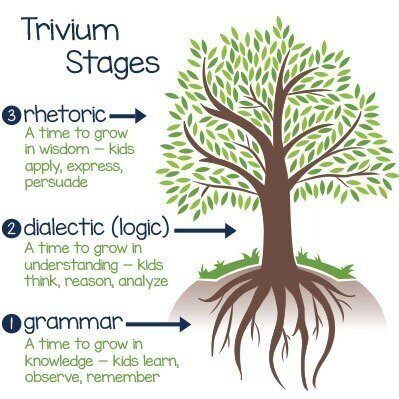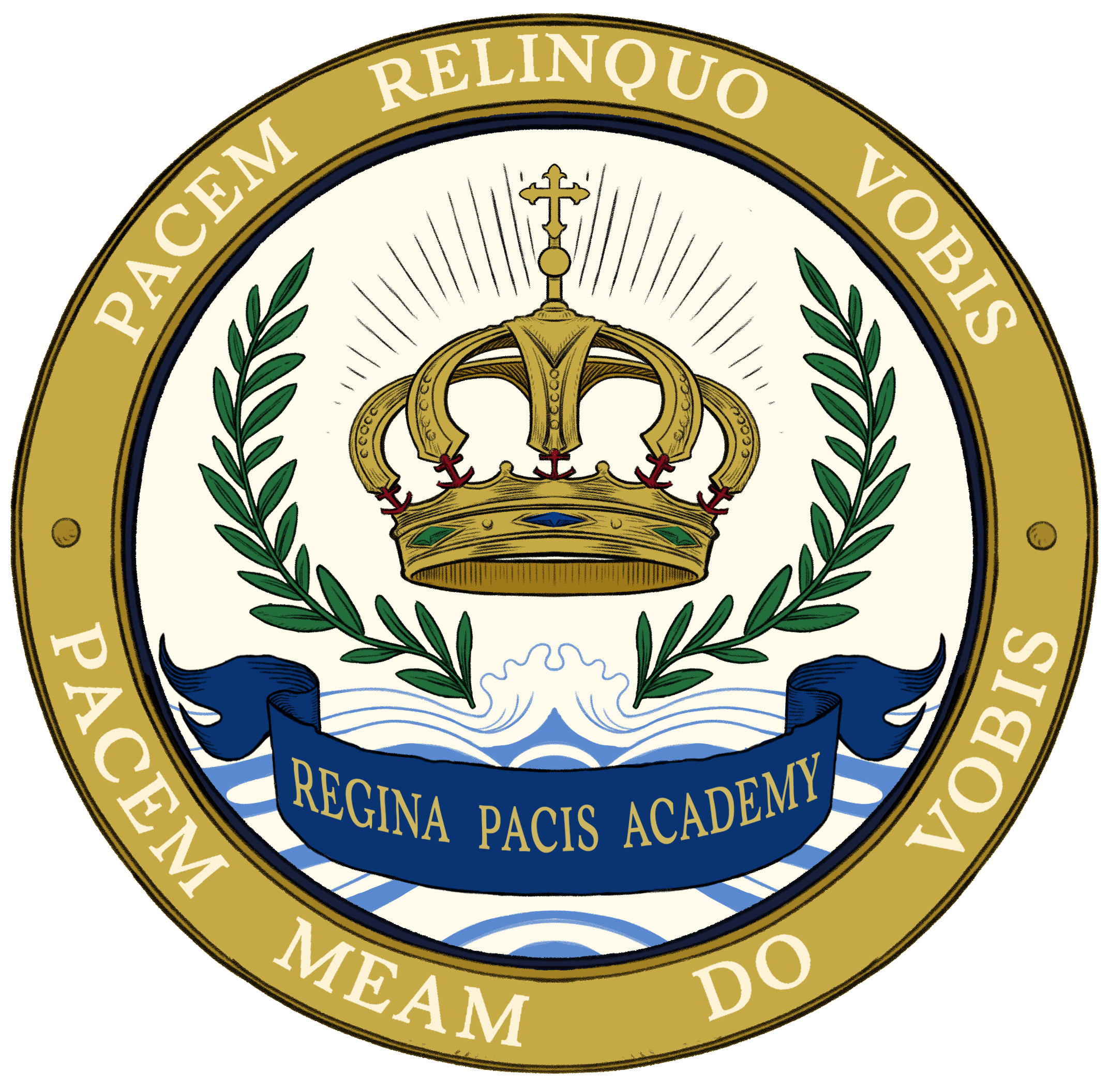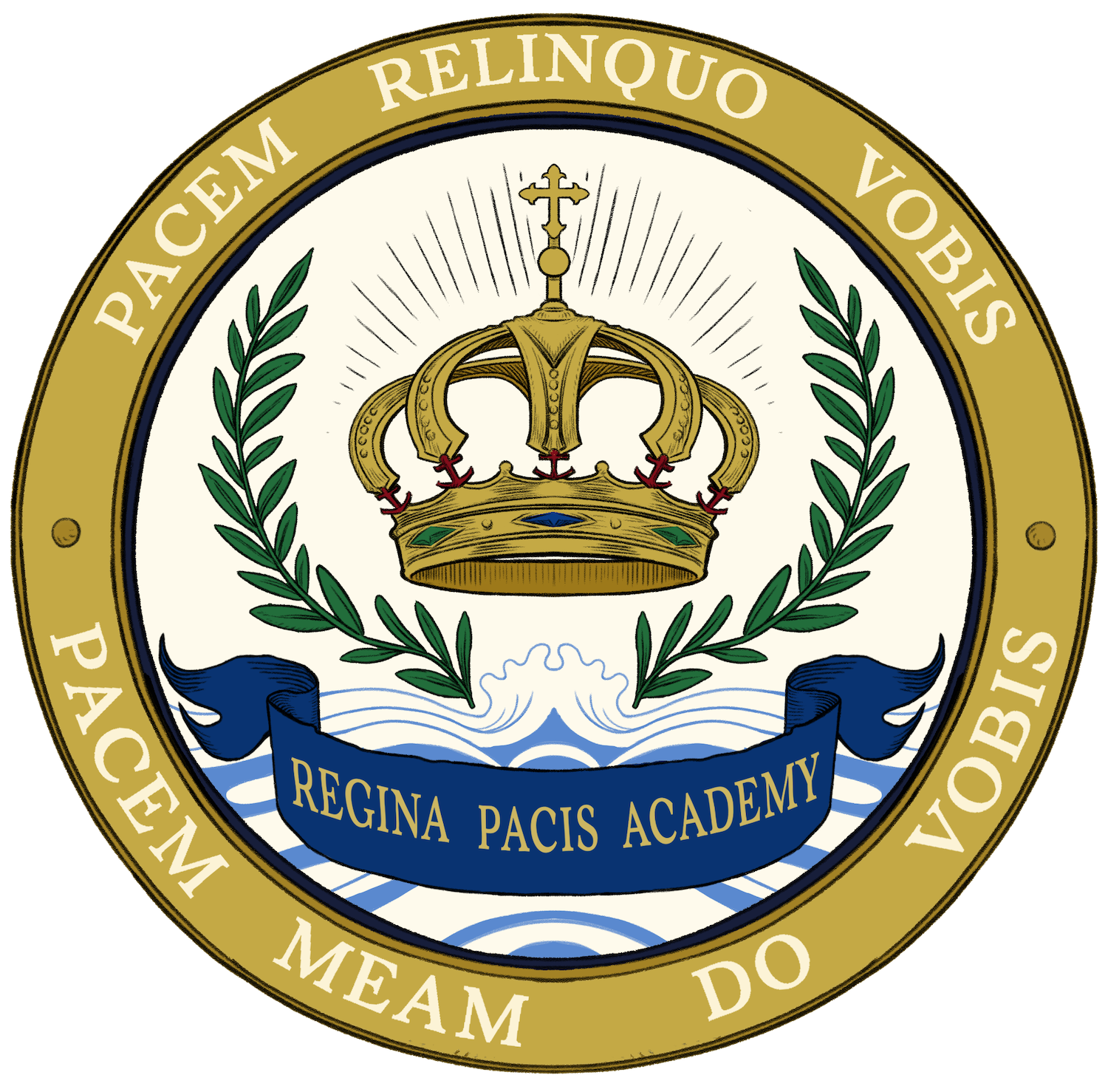Our classical curriculum is uniquely designed to direct the integral formation of the whole person—the intellectual, human, spiritual, and apostolic aspects of each child. Our educational model offers our students the breadth of human knowledge: Catechesis, Mass, Eucharistic Adoration, and Traditional Devotional Practices, Literature, including poetry recitation, Grammar & Writing, Latin, History, Mathematics through Algebra I (with options for advanced students), Science, Drama, Art, Music and Physical Education, and Library. Here at Regina Pacis Academy, we aim to form the children in our care into saints and scholars (as our motto has it) by encouraging their natural desire to learn and allowing their roots to grow deeply so their minds and souls can be strong, reach high, and weather the inevitable storms of life.

Mirroring the natural and organic development of the human mind, the classical approach, also known as the Trivium, divides the stages of learning into three: grammatical, dialectical or logical, and rhetorical.
The grammatical stage (grades Pre-K to 5) emphasizes memorization and the learning of fundamental rules through drills and repetition. As grammar is the foundation for learning language, this stage provides building blocks for later learning.
The logical stage (grades 6 to 9) takes these skills acquired in the grammatical stage and employs them for use in logical constructions. The child learns cause and effect, how things relate to each other and how they fit together. A child is ready for this stage when he has the capacity for abstract thought.
The rhetorical stage (grades 10 to 12) takes facts and logic from the previous stages and uses them finally for creative purposes. This is when a student learns how to express what he has learned in a coherent fashion and learns the art of persuasive argument.

